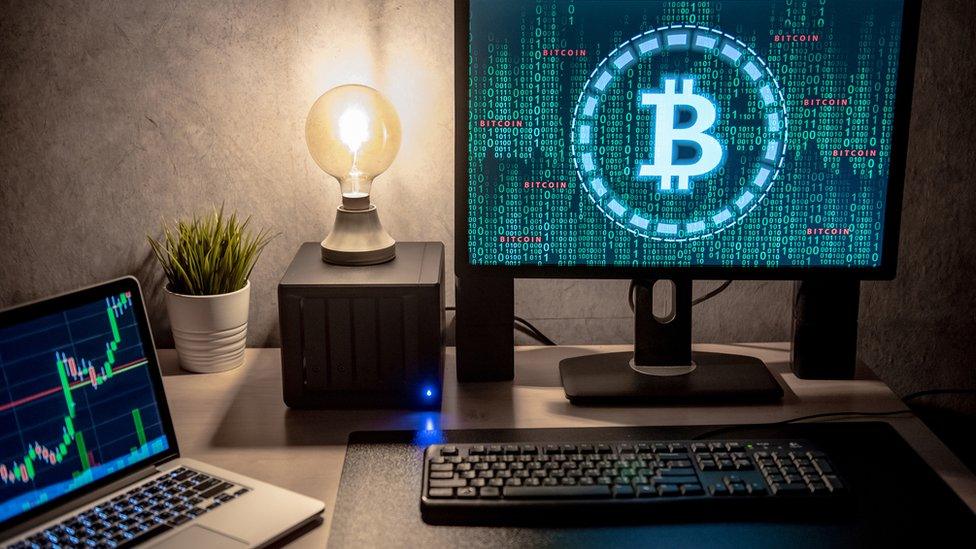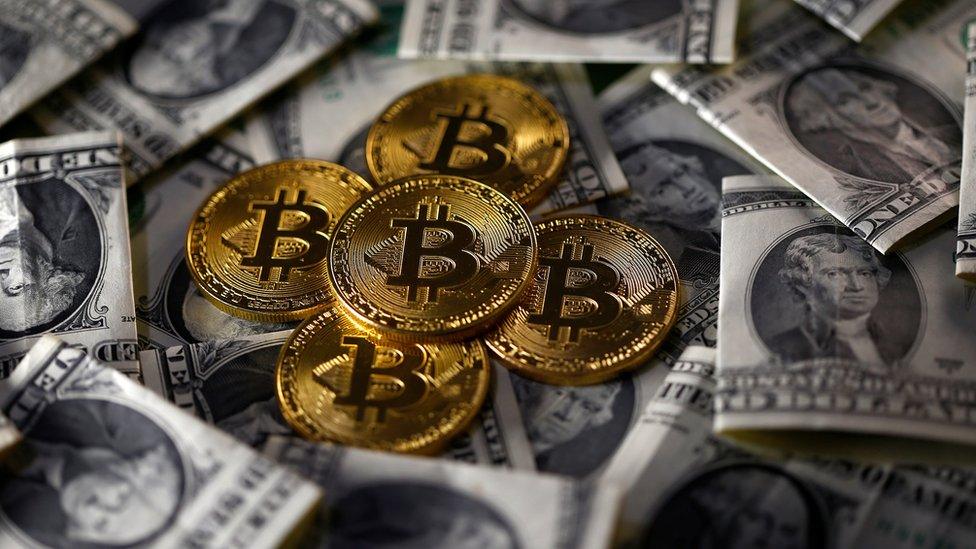A new addiction: Could you be hooked on Bitcoin?
- Published

Experts in gambling addictions have identified a new ticking time bomb.
The explosion of interest in cryptocurrencies such as Bitcoin has created a new kind of addiction.
A rehab clinic in the Scottish borders is now offering a treatment for digital money traders who cannot stop speculating within the unpredictable market.
The rise of Bitcoin has combined with advances in technology allowing anyone to trade online.
Bitcoins and other cryptocurrencies are bought and sold like shares, and traded globally. Their value also fluctuates like shares.
Castle Craig Hospital, external in West Linton has been inundated with inquiries about helping people addicted to trading in the modern currency and is treating it in the same way as gambling addiction.
'Like a slot machine'
Michael Parsons is a Bitcoin expert.
He told BBC Scotland's Stephen Jardine Programme why this modern activity has become addictive: "I think because Bitcoin entered the mainstream last year and it went up ten times in value, people have a fear of missing out and want to jump in.
"They are incorrectly looking at the historical rise of Bitcoin and think that will be repeated - which it may be or may not be - so they are buying purely on speculation and not on understanding."
He said the practice is based on hope - like putting money into a slot machine.
"Bitcoin has gone up ten times last year, over the last 12 months it's gone up 240%, in the last month it's gone down by 23% and today it went down almost 3% itself," he said.
"People are looking at the wild fluctuations and thinking they have to jump on the bandwagon and perhaps make some money out of it."

What is cryptocurrency?
There are now thousands of different crypto-currencies, but Bitcoin is still the best-known.
Bitcoin has no notes or coins: it is digital and largely exists online and it is not issued by governments or traditional banks.
Bitcoins are created through a complex process known as "mining", and then monitored by a network of computers across the world.
It was reported in January 2018 that the total value of all cryptocurrencies was almost £500bn
It is estimated there are between 13 and 28 million active users of cryptocurrencies in the world today.
Baroness Michelle Mone explains why her venture was attracted to Bitcoin
Its value is determined by how much people are willing to buy and sell it for.
There is no registry linking real names to addresses, which helps some Bitcoin users to protect their anonymity.
Bitcoin "wallets" operate like privately-run bank accounts - with the proviso that if the data is lost, so are the bitcoins owned.
The anonymity afforded by digital currencies has attracted people wanting to make illegal purchases on the internet.
A growing number of businesses - including a property venture launched by Scots businesswoman Michelle Mone - now allow customers to buy goods and services with Bitcoin.

The man who helps cryptocurrency addicts is Castle Craig therapist Chris Burn.
He told BBC Scotland the attraction is the same as for those who are pulled into gambling: "It is a kind of a bubble situation that is very exciting for people, particularly for compulsive gamblers, because excitement is a big part of any addiction. We see this as potentially large."
He said: "You have the elements of poor regulation, an air of mystery about it, and the idea of gambling can seem a sort of noble thing to do.
"That and the combination of potential huge gains is really attractive to a lot of people who would never dream of any other addictive activity."

Bitcoin's value has been very volatile during its nine-year history
He says the gravity of this potential issue cannot be underestimated.
"This is an addiction and illness that causes a lot of people to end up in despair, even suicide, so it has to be taken very seriously and people need to take practical measures," he said.
Chris explained the warning signs to look out for: "They are quite obvious. You may be making a profit on your trading but if you are spending 16 hours a day staring at a computer you may be losing an awful lot of other elements in your life - friendships, work, exercise. You may be damaging yourself in ways you are not aware of.
"People can get extremely anxious and display physical symptoms - sweating, shaking, unable to sleep, really serious physical symptoms."
Details of organisations offering information and support with addiction are available at bbc.co.uk/actionline or you can call for free, at any time to hear recorded information on 08000 155 947.
- Published7 March 2018
